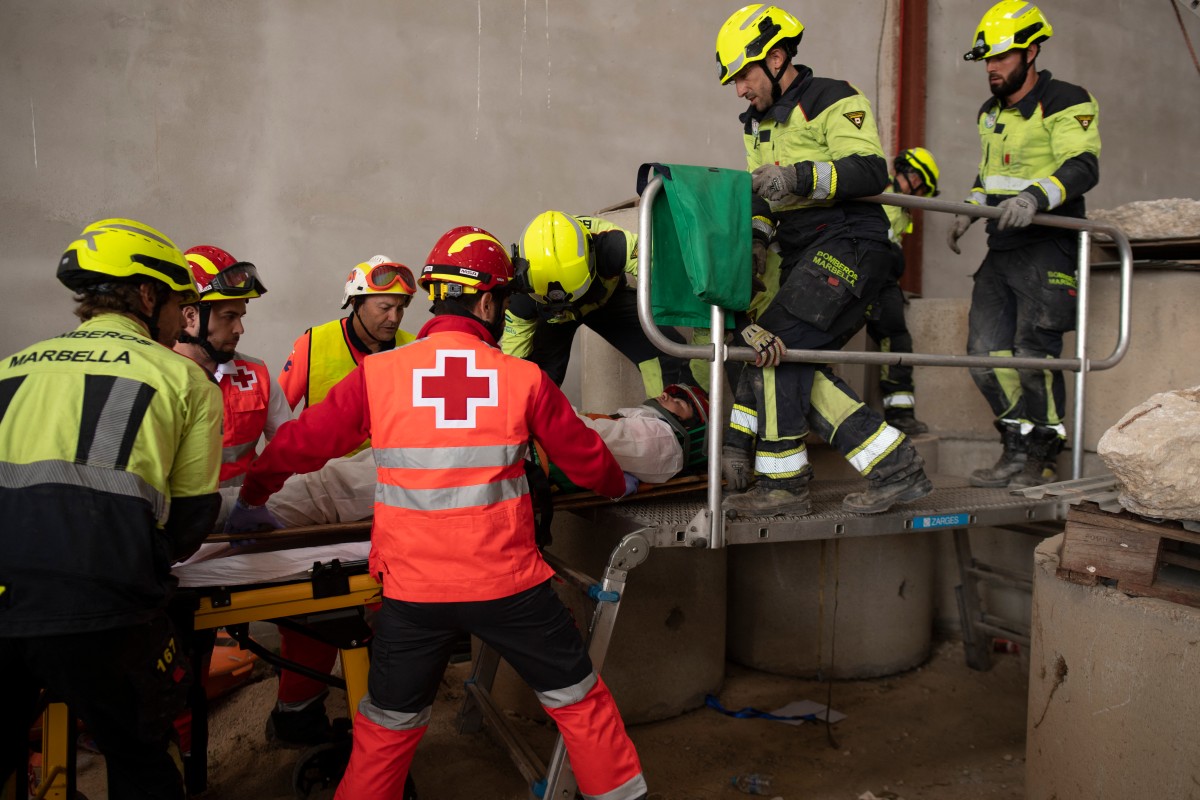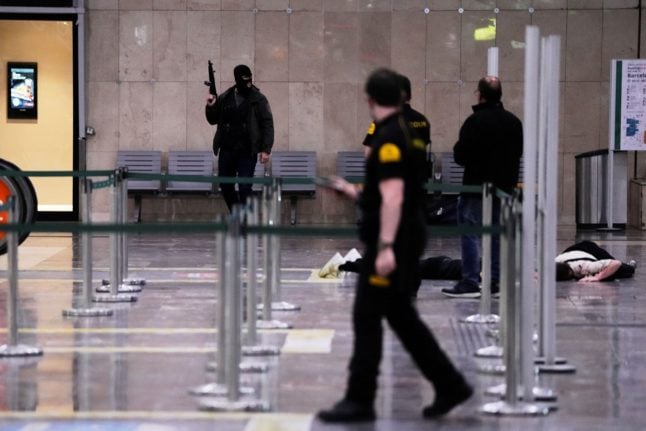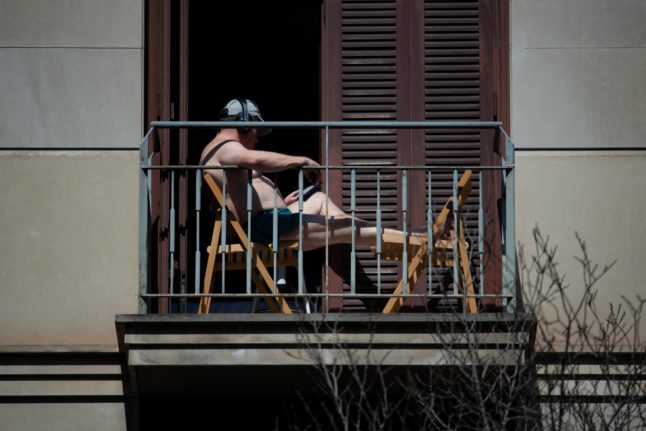Down in the coastal town of Chipiona, Cádiz province, in the very south-western point of Spain, the local government hosted a tsunami simulation this week to coordinate a joint response to the threat of a tsunami wave smashing into the coastal city.
Though this may seem unlikely, Cádiz does have form when it comes to tsunamis. The tsunami of 1755, caused by an 8.5 magnitude earthquake in the Atlantic, devastated the cities of Cádiz and nearby Huelva and killed hundreds of people.
Coordinated by the National Seismic Network of Spain’s National Geographic Institute (IGN), the disaster drill saw a local school with 250 students evacuated in record time.
“There are many earthquakes in this area and you have to be cautious,” said the mayor of Chipiona, Luis Mario Aparcero.
In the very same week, Andalusian neighbours in Málaga province also had their very own disaster simulation drills, this time preparing for the threat of earthquakes and forest fires.

These sorts of natural occurrences seem much closer to home to many Spaniards, with forest fires ravaging many parts of the country over the summer and the recent earthquake in nearby Morocco focusing many minds on the risks of similar disasters in Spain.
READ ALSO:
- Why are there so many forest fires in Spain?
- What are the chances of a big earthquake happening in Spain?
The emergency drills, run by the Junta de Andalusia and held in the provinces of Málaga and Cádiz, were held to test the local emergency services in the face of major catastrophes. Two simulations were held in the municipalities of San Roque and Marbella.
In Barcelona, about 500 people took part in what the Spanish press has called a very “realistic” drill that saw several “terrorists” killed by Spanish security forces.

As part of the drill, six actors pretending to be terrorists entered Barcelona’s Sants train station and staged an attack. Different scenarios were played out, ranging from indiscriminate attacks to kidnapping hostages on a train.
The anti-terror drill was the “biggest simulation that has ever been done,” according to Joan Ignasi Elena, Interior Minister of the Generalitat, Joan Ignasi Elena, which involved hundreds of emergency service personnel, the security services, and extras.
In the current political climate perhaps anti-terror drills are not surprising.
Spain has been at the second-highest anti-terror level since 2015, but in recent weeks it has been raised and new security measures implemented amid terror attacks in Europe and the Israel-Hamas war.
Spain’s Interior Minister Fernando Grande-Marlaska ordered that Spain’s terror threat level be increased to four out of five with “complementary measures”, in the wake of the murder of two Swedish football fans in Brussels and a French school teacher killed by IS in Paris. Security concerns have been compounded following violence in the Middle East.
READ MORE: Spain raises terror alert after Belgium and France attacks
Ignasi Elena, however, was keen to “decontextualise” the current anti-terrorist alert situation in Spain due to the war situation between Israel and Gaza, since the disaster drill Barcelona had been scheduled for a long time.
In February 2023, the Spanish government also activated its new mobile alert system that warns people in the country of nearby natural disasters or emergencies.
In October, authorities launched drills in the regions of Cantabria, Asturias and Andalusia, which saw people on the network in those autonomous communities receive SMS where they were informed it just a simulation.
Although there has been no publicised reason for these drills to all take place over the course of October and November, authorities are clearly trying to prepare the country’s emergency services and Spain’s 48 million inhabitants for the possibility of having to act fast in the event of a natural disaster or terror attack, all of which seemingly appear more likely in a world of increasingly extreme weather and escalating geopolitical tensions.



 Please whitelist us to continue reading.
Please whitelist us to continue reading.
Member comments